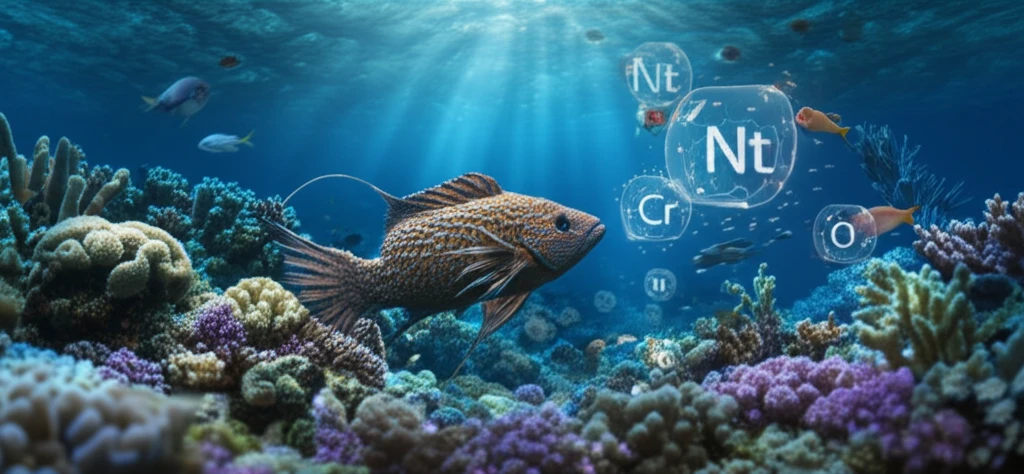
Dietary Discord: Unraveling Macronutrient Mysteries in Herbivorous Fish
"Dive into the surprising world of fish nutrition where dietary analysis clashes with actual macronutrient content, challenging our understanding of aquatic ecosystems."
In the vast and complex ecosystems of our oceans, understanding the dietary habits of marine life is crucial. Researchers often rely on diet analysis to determine what nutrients fish are consuming, which in turn informs conservation strategies and ecological models. However, a recent correction to a study published in 'Marine Biology' highlights a significant discrepancy: what fish appear to be eating isn't always an accurate reflection of their actual macronutrient intake.
The original study, which focused on nominally herbivorous fish in the Southwestern Atlantic, initially aimed to understand the nutritional content driving these species. However, errors in the original data led to a re-evaluation, revealing that traditional diet analysis methods can be misleading. This revelation has broad implications for how we assess the health and ecological role of fish populations.
This article delves into the details of this correction, exploring the surprising discordance between diet analysis and the true macronutrient content in herbivorous fish. We'll examine the specific findings of the corrected study, discuss the potential reasons for these discrepancies, and consider the broader implications for marine biology and conservation.
The Macronutrient Mismatch: A Closer Look

The corrected study focuses on four species of herbivorous fish from the Southwestern Atlantic. These fish were initially believed to have diets that were relatively similar based on standard diet analysis techniques. However, when researchers delved deeper, they discovered significant differences in the actual macronutrient composition of what the fish were consuming.
- Challenges Traditional Methods: Highlights the need to refine or supplement traditional diet analysis techniques with more precise macronutrient assessments.
- Impacts Conservation Strategies: Inaccurate dietary information can lead to misguided conservation efforts. Understanding true nutritional needs is vital for effective management.
- Ecosystem Modeling: Distorted data can skew ecological models, affecting our understanding of energy flow and species interactions within marine ecosystems.
- Species-Specific Needs: Emphasizes that even fish within the same functional group (herbivores) can have drastically different nutritional requirements.
Implications and Future Directions
The correction to this 'Marine Biology' study serves as a critical reminder of the complexities involved in understanding marine ecosystems. It underscores the need for researchers to adopt a more nuanced approach to diet analysis, incorporating detailed macronutrient assessments and considering the potential biases inherent in traditional methods. By refining our understanding of fish nutrition, we can develop more effective conservation strategies and ensure the health and resilience of our oceans for future generations. Further research should focus on developing new techniques for assessing macronutrient intake in fish, as well as exploring the factors that contribute to dietary selectivity and nutrient processing. This will lead to a more accurate and comprehensive understanding of the ecological roles of herbivorous fish and their importance in marine ecosystems.
